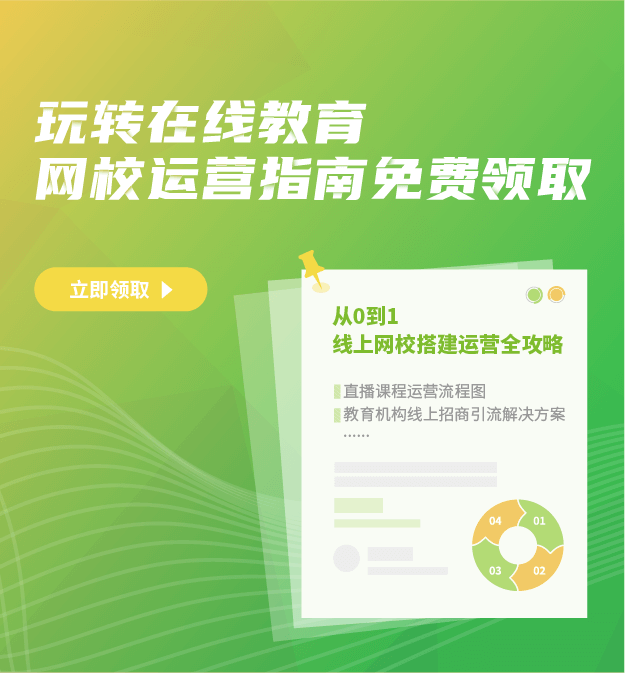There is a really, REALLY common worry about unschooling – “My kid only likes one thing, and he won’t do anything but that if I don’t push him to do other things”. Usually it’s video games, TV or Yu-Gi-Oh. But sometimes it’s skateboarding or reading or drawing…..
这是对非学校教育普遍而真切的担忧——“我的孩子只喜欢一样东西,如果我不催他做别的,他就只做那一件事,什么都不做”。通常,这些事情不是电玩,就是电视,或者游戏王(Yu-Gi-Oh),有时也会是滑板、阅读或绘画……
Among unschoolers/life learners/whatever, there are many answers to this. My answer is this – then push him! Jeez. Pushing kids to do things doesn’t mean we’re forcing them to learn, or expect them to perform for us or even expecting them to like it. There’s a cool movie, or an art festival or a interesting class, or whatever… there’s nothing wrong or un-unschooly with trying to convince a child to go.
在非学校教育者/终身学习者(随便怎么称呼吧)中,可能会有很多对策。我的答案是——那就推动他!呃,推动孩子做事情并非意味着我们迫使他们学习,或者期望他们为我们表现,甚至期望他们会喜欢。有部很酷的电影、艺术节,或有趣的课程等等……试图说服孩子参与是没错的,也没有偏离非学校教育的宗旨。
Unschoolers don’t just sit back and go, “whatever”. We are engaged, fully, completely and wholly engaged with our kids. All kinds of homeschoolers are. But unschooling gets this rap for being “hands off” when it’s very much the opposite.
非学校教育者并非只坐以待毙。我们参与其中,全身心投入到孩子身上。所有居家教育者都如此。可非学校教育者总在情况完全相反时,听人说要“放手”。
Communication is the key to learning as a family. Communication is how we know if what we are doing is working. Kids can communicate surprisingly well what they need if we are willing to sit down with them and listen to what they have to say.
作为家人一起学习,关键是沟通。通过沟通,我们才能知道所做的是否有效。如果我们愿意和孩子一起坐下来,聆听他们的心声,他们有效沟通自己需求的能力会让你刮目相看。
Homeschooling and parenting are not about parents deciding what happens and kids follow. At, they shouldn’t be in my opinion. They are co-operative efforts. Even unschooling parents have needs, and are allowed to speak up about those needs. For example, we could say, “These are the needs I have as a parent – I need to be with you and spend time with you doing things. I like to see you learning new things and I like seeing you stretch your brain. Do you like these things too? How can we do this? How can we make our days so that you get the computer time you want, but I also get the family time I crave and I get to see you do other things?”
居家教育和当家长不是家长决定怎么做,然后让孩子效法。至少鄙人不敢苟同。这应该是同心协力的工作。即使居家教育的家长也有需求,而且也可以大声说出这些需求。比如,我们可以说,“这些是我作为家长的需求——我需要和你在一起,我需要花时间和你一起做事。我喜欢看你学习新东西,我喜欢看你动脑筋。你也喜欢这样吗?我们怎么才能做到呢?我们该怎么安排时间,好让你有想要的电脑时间呢,不过也让我有我渴望的家庭时间,让我也看到你做其他事?”
Another great conversation to have is to ask everyone in the family, “What do you want in life? What makes you feel successful, happy and like a full human?” It’s important to really listen. Because the answer to these questions are the basis of the unschooling curriculum. We want our kids to be successful, happy and full human beings. When they say what it takes to create that, that’s our cue to do as much as we can to give them a platform to achieve that. And, a lot of times, what they do, how they react to what we say, and the things they choose to pursue are just as good of answers to these questions.
另一种很棒的对话是问问家里每个人,“生活中,你想要什么?什么让你感到成功、幸福,感到是一个完整的人?”真正聆听至关重要。因为这些问题的答案乃是非学校教育的基础。我们希望孩子成功、幸福,成为完整的人。当他们说出什么可以结出这些果实时,那是给我们提示,尽量这么做,给他们平台获得此目标。通常,他们做什么、对我们的话语如何反应、他们选择追求的东西也和这些问题的答案一样有意义。
So when we have conversations like this, we aren’t telling our kids *what* other things we want them to do. But we are being parents and a loving ones at that, by making it clear that we try to get them to do things because we like their company, we think they’ll like it, and it seems cool.
所以,当我们这样谈话时,我们不是告诉孩子,我们想让他们做其他什么事情。不过,如果我们讲清楚,我们尝试让他们做事是因为我们喜欢他们的陪伴,我们以为他们会喜欢,如果这样当家长,而且当充满慈爱的家长,会很酷哦!
If we approach conversations and “pushing” our kids from a “I love you and I want to be a part of your life, see you thrive, and be a part of the world” and don’t put any guilt, shame, mistrust or blame into the equation, we can get excited about our kids’ lives, and be up front about why we are trying to get them involved in things other than their primary interest. The follow up to all of this, is once pushed to “give it a try”, to let them experience it in their own way, with no expectations of performance, or gratitude or any other “payback”. If we truly are pushing them to do something because we love them, we aren’t attached to the outcome of whether they like it or do well in that particular thing.
如果我们开展谈话,从“我爱你,我想成为你生活中的一部分,看你茁壮成长,成为世界的一部分”的角度推动孩子,而不要在方程式中代入罪恶、耻辱、不信任或责备,我们就可以因孩子的生活感到兴奋,提前告诉孩子我们为什么希望他们做他们兴趣以外的事。在跟进整个事情时,一旦已经推动孩子“尝试一下”,就让他们用自己的方式经历,不要期待有什么表现,或者感恩或者任何其他“回报”。如果我们推动他们做什么事情的确是因为我们爱他们,我们就不会特别在意他们是否喜欢或者是否做得很好。
Some unschoolers would say, “So, let kids play games all day.” I’m cool with that approach too, because I’ve seen (and experienced) what happens when a person doesn’t have a time limit and can literally play as much as he likes. There’s no school looming. There’s no end in sight. It’s not like summer vacation where he knows he’s on limited time.
有些非学校教育者会说,“那么让孩子整天都玩游戏好了。”我觉得这个方法也很酷,因为我已经看到(而且体验过)当一个人毫无时间限制放开了玩会怎样。没有学校等着你。看不到尽头。不像暑假他知道时间有限。
Eventually, he realizes that he’s spending a lot of time on something and not spending time on a lot of other things. He either gets bored or realizes that there are other things he wants to do too. Especially if the rest of the family is doing fun stuff and really engaged in life without giving him guilt trips that he’s not participating, or otherwise sending him signals that’s he’s not able to make his own decisions.
最终,他会意识到他花了很多时间在某样东西上,而不是花时间在很多其他东西上。他要么会厌倦,要么会意识到他也想做其他事情。尤其当家里其他人都在做其他好玩的事,完全投入到生活中,没有责备他不参与,也没有给他信号表示他无法自己决策。
But, it’s really hard to go that route, and I understand that. So, I say if we can’t let our kids burn themselves out on their one activity – have a conversation, with everyone, and listen. Well, we all could benefit from family conversation, regardless. Using a “talking stick” is a good tool if listening isn’t a habit. And, asking each other to repeat what has been said to make sure that everyone understands each other is another way to create trust and closeness between family members.
不过那么做很难,我理解。所以,我说,如果我们不能让孩子咎由自取——开展谈话,和每个人都谈话,聆听。无论如何,我们都能从家庭谈话中受益。如果没有聆听的习惯,那么使用“发言棒”是个好方法。问所有其他人发言者都说了些什么,确保大家都彼此理解,是打造家人之间信任与亲密的另一种方法。
By working together to make our days what we can all live with, it’s easier to come to an agreement that lets everyone be heard, understood and free to choose what’s important in their own life.
通过共同打造我们可以共同生活的时间,我们才能比较容易地达成共识,让每个人都被聆听,被理解,自由选择自己生活中重要的东西。
Unschooling is a philosophy, not a “thing people do”. So when you people talk about unschooling in can be confusing to understand all the “whats”. It doesn’t make sense. Focusing on “why”s rather than “what”s makes it much easier to understand what unschooling is trying to accomplish. To me, it doesn’t matter if people agree or not with the philosophy behind unschooling. But knowing the “why” behind education, whatever that “why” is, allows the “what” to fall into place.
非学校教育是哲学,不是“人们所做的事”。所以,当你们谈论非学校教育时,理解所有的“什么”可能令人相当困惑。毫无意义。侧重于“为什么”而不是“什么”让人们更容易理解非学校教育试图达到什么目的。对我而言,人们是否同意非学校教育背后的理念并不重要。但是理解教育背后的“为什么”,不论是哪个“为什么”,都会让那个“什么”到位。

